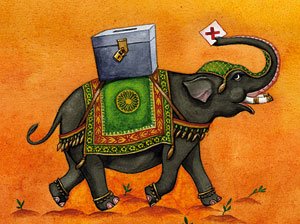Interested in elections and political accountability? Looking for research experience conducting impact evaluations? Pia Raffler and I are hiring a research assistant for a new study on elections in Uganda. Desired start date is January 2015, running through early 2016. Applications are currently being reviewed, so those interested should submit an application immediately. More information below, and at this link.
Research Associate – Meet the Candidates (Uganda)
- Reports to: Research Manager
- Location: Kampala, Uganda with frequent travel up-country
- Deadline to apply: Applications will be reviewed on a rolling basis
- Desired start date: January 2015
- Length of commitment: 16 months
Innovations for Poverty Action seeks a qualified Research Associate to oversee the impact evaluation of an information campaign on voter behavior in the context of the 2015 primary elections and 2016 general elections in Uganda. The intervention will involve the recording of ‘Meet the Candidates’ sessions with Ugandan candidates for political office. Sessions will be recorded and edited by local film crews and will be screened in a random selection of polling station catchment areas. The position offers an opportunity to gain first-hand field management experience in an organization undertaking cutting-edge development research. The Principal Investigators for this project are Melina Platas Izama (Stanford University) and Pia Raffler (Yale University).
Responsibilities:
- Coordinating and supervising all data collection activities
- Closely work with partner organizations, including political parties, on the recording and screening of ‘Meet the Candidate’ sessions
- Formulating plans to operationalize field activities suggested by Principal Investigators
- Developing and piloting survey instruments
- Working closely with the Principal Investigators and the local partners running the program to ensure study protocols are followed
- Hiring, training, and managing teams of local enumerators that will conduct data collection among business owners, workers, and household members
- Planning, organizing and reporting on surveys in the field
- Managing the project data from collection to cleaned datasets
- Tracking expenses and adhering to the project budget
- Writing regular progress reports
Qualifications:
- Bachelor’s degree in economics, social sciences, public policy, or related fields; a Master’s degree in any of these fields is a strong plus
- Training in economics and statistics
- Excellent management and organizational skills
- Demonstrated proficiency in Stata and experience with data management, data cleaning, and regression analysis is a must
- Ability to prioritize and manage multiple assignments simultaneously with minimal supervision
- Excellent oral and written communication skills. Fluency in English is required
- Experience conducting field research in a developing country is strongly preferred. Previous experience with impact evaluations and/or randomized controlled trials is a strong plus

